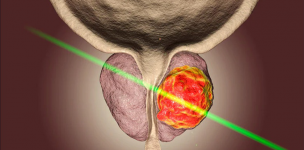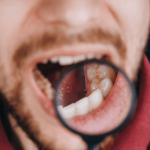Are you or a loved one suffering from Prostate Cancer and looking for the best prostate cancer treatment? There is absolutely nothing to worry about as prostate cancer can be treated by seeking immediate medical intervention.
Table Of Contents
Feel free to skip ahead if one topic catches your eye:
- Types of Prostate cancer
- Who is more likely to get Prostate Cancer?
- What are the signs and symptoms?
- Test and Diagnosis
- Treatment of Prostate cancer in India
- Prostate cancer Recovery and Aftercare
Takeaway
- Types of Prostate cancer
Almost every type of prostate cancer is adenocarcinoma. It develops from the cells of the prostate gland (the cells that make the prostate fluid that gets added to the male semen).
Other cancer types that may start in the prostate include:
- Neuroendocrine tumors (except small cell carcinomas)
- Small cell carcinomas
- Sarcomas
- Transitional cell carcinomas
Prostate growths may be benign (non-cancerous) or malignant (cancerous).
- Benign growths such as benign prostatic hyperplasia (BPH) are generally not a threat to life or non-fatal. They don’t spread to other body parts and don’t invade the tissues surrounding them. Benign prostate growths can be removed and they generally don’t grow back.
- Malignant growths may be fatal and can metastasize (spread) to other body parts such as bone or lymph nodes. They may spread to nearby tissues and organs such as the rectum or bladder. Malignant growth can be removed but may grow back in some instances.
- Who is more likely to get Prostate Cancer?
The exact cause of prostate cancer is not known but some doctors state that this form of cancer starts developing when cells in the prostate undergo changes in their Deoxyribonucleic acid (DNA).
The DNA of a cell includes the instructions that communicate a cell what is expected of it. The changes communicate to the cells to go on a growth spree and divide more quickly than other cells of the body. The abnormal cells continue to live and prosper when other cells would die. The accumulation of these abnormal cells result in the formation of a tumour that has the potential of growth for invading the nearby tissue. Over time, some of these abnormal cells start breaking away and metastasize (spread) to other body parts.
The risk factors for prostate cancer include:
- Older age. The risk of prostate cancer increases as men age. This form of cancer is most prevalent in men over the age of 50 years.
- Race. For undetermined reasons, Black people are at a larger risk of prostate cancer. Moreover, prostate cancer in Black people is more likely to be advanced or aggressive.
- Obesity. Obese people are at more risk of developing prostate cancer when compared to people with a healthy weight. Furthermore, obese people generally experience advanced or aggressive prostate cancer and the health complication is more likely to make a comeback after initial treatment.
- Family history. Your risk of developing prostate cancer may be higher if a blood relative like a sibling, child, or parent has been diagnosed with prostate cancer. Furthermore, the risk of prostate cancer is also higher if you have a family history of genes that are capable of increasing the risk of breast cancer [BRCA1 (Breast Cancer gene 1) and BRCA2 (Breast Cancer gene 2)] or if you have a strong family history of breast cancer.
- Smoking. The risk of prostate cancer is double for heavy smokers. Smoking is also linked to a higher incidence of deaths from prostate cancer. However, the risk goes down to a non-smoker of the same group within 10 years of quitting smoking.
- Mutations in CHEK2, ATM, PALB2, and RAD51D genes can also result in some hereditary prostate cancers.
- DNA mismatch repair genes (such as PMS2, MLH1, MSH2, and MSH6).
- Exposure to radiation or cancer-causing chemicals.
- What are the signs and symptoms?
The signs and symptoms of prostate cancer include:
- Blood in the urine
- Trouble while urinating
- Reduced force in the urine stream
- Blood in the semen
- Unexplained weight loss
- Erectile dysfunction
- Bone pain
- Painful ejaculation
- Pain in the lower pelvic area
- Loss of appetite
- Test and Diagnosis
The urologist may perform a physical examination to evaluate the risk, extent, and severity of the health condition. Digital rectal examination (DRE) and prostate specific antigen (PSA) blood test may be recommended to detect prostate cancer at an early stage. In some instances, the urologist may recommend a prostate biopsy wherein small tissue pieces are removed after administering an enema and antibiotics from the patient’s prostate and viewed under a microscope. The urologist or a member of the medical team will take images of the prostate through ultrasound and the urologist will then have a look at the shape and size of the prostate and any possible abnormalities.

- Treatment of Prostate cancer in India
The urologist will formulate a treatment plan based on:
- The grade and stage of the cancer (TNM stage and Gleason score).
- The risk category of the patient (low, intermediate, or high risk).
- Patient’s age and health.
- The preferences of the patient in the context of long-term effects, side effects, and treatment goals.
The treatment choices for prostate cancer are:
- Active Surveillance: It involves regular monitoring of the cancer growth with regular DREs, PSA tests, and periodic biopsies. A multiparametric magnetic resonance imaging (pmMRI) examination may be performed to assist with biopsies. The doctor will evaluate the growth of cancer with active surveillance and may recommend surgery and radiation as the next course of action.
- Robotic Assisted Laparoscopic Radical Prostatectomy (RALP): A commonly-performed prostate cancer surgery, RALP involves the assistance of a robotic system to the surgeon to hold and guide the laparoscopic surgical tools and camera. This helps in removal of the prostate via small ports placed in the abdomen.
- Retropubic Open Radical Prostatectomy: During this surgical procedure, the surgeon will make an incision (cut) into the lower abdomen and remove the patient’s entire prostate through the opening. Thereafter, an assessment of the prostate gland and the surrounding tissue is made while minimising injury to nearby organs.
- Radiation Therapy: This procedure involves the use of high-energy rays (proton beams or photon beams) for slowing or killing the growth of cancerous cells. It is considered as the primary set of treatment for patients diagnosed with prostate cancer. It may be used after surgery if the cancer returns or is not fully removed.
- Prostate Brachytherapy (Internal Radiation Therapy): During this procedure, radioactive substance is directly placed using a hollow needle into the prostate. The surgeon may perform a low dose rate (LDR) brachytherapy to insert radioactive “seeds” using a thin needle into the prostate to kill the nearby prostate cancerous cells. In this procedure, the radioactive “seeds” are left in the prostate even after the completion of the treatment. On the other hand, high dose rate (HDR) brachytherapy involves putting radiation using a slightly larger hollow needle into the prostate for inserting a thin catheter. All kinds of radioactive material are removed after the completion of the treatment. During both procedures, anesthesia is provided and patients may be asked to stay overnight in the hospital.
- Cryotherapy: Also known as cryoablation, this procedure performed under anesthesia involves controlled freezing of the patient’s prostate gland to destroy cancerous cells. Cryotherapy can be a good choice for men who are otherwise not good candidates for radiotherapy or surgery due to health issues.
- HIFU and Focal Therapy: High-intensity Focused Ultrasound (HIFU) involves the use of sound wave energy for targeting and super-heating the patient’s tumour with a predefined purpose to kill cancerous cells through MRI scans. Focal cryoablation involves the use of a thin needle examination for circling the tumour with a custom solution to kill the tumour by freezing it.
If you are looking for treatment of prostate cancer, you should choose India as your medical tourism destination. India is home to some of the world’s leading, skilled, experienced, and reputed surgeons, doctors, urologists, and other medical professionals. Indian hospitals are globally renowned for their state-of-the-art infrastructure, latest technologies, advanced equipment, and compassionate care. The best thing is that Indian hospitals perform advanced and minimally invasive techniques to detect and treat prostate cancer and the 5-year survival rate for a majority of prostate cancer patients (with regional or local prostate cancer) is approximately 100 percent.
Recently, the Indian government introduced the concept of e-visa that allows patients from all parts of the world to avail of medical visas online. Even during today’s challenging COVID-19 pandemic times, Indian hospitals have managed to serve local and international patients by offering safe, clean, hygienic, and sanitised medical facilities while maintaining social distancing and other precautionary measures. The treatment for prostate cancer in India is highly affordable and approximately one-fifth or one-tenth (even more in some cases) when compared to prostate cancer treatment in western countries.
To access the best and most affordable prostate cancer treatment in India, you simply need to contact MediNirvana – the most reputed medical tourism organisation in India. The team at MediNirvana will ensure that everything is taken care of for you and your family before, during, and after the prostate cancer treatment in India so you don’t have to worry about anything during your difficult time.
- Prostate Cancer Recovery and Aftercare
It is important to follow the undermentioned tips to lead a healthy lifestyle:
- You should consume a lot of fresh fruits, whole grains, and vegetables. Fruits and vegetables are rich in vitamins, minerals, and nutrients that can help you lead a healthy life. You should prefer healthy foods over supplements.
- You should regularly follow all tips, precautions, and instructions provided by the surgeon and the medical team to make a quick recovery.
- Exercise helps in improving your general and overall health. Furthermore, it helps in improving your mood and maintaining your weight. You should engage in regular exercises for at least 30-45 minutes every day without fail.
- If you are obese or overweight, you should lose weight by adding more exercises and minimise the count of calories you consume every day. You may have a word with a doctor or dietician for healthy weight loss. If your weight is healthy, you should make every possible effort to maintain it.
- If you are at a high risk of prostate cancer, you should seek immediate medical intervention. The doctor may recommend 5-alpha reductase inhibitors, including Dutasteride (Avodart) and Finasteride (Propecia, Proscar) to reduce the overall risk of prostate cancer. These medications are effective for controlling the enlargement of the prostate gland and hair loss. However, you should never self-prescribe medications.
- You should abstain from nicotine and alcohol. Moreover, you should avoid processed and junk food.
Takeaway
Prostate Cancer can be traumatic and extremely challenging. However, you can access the best and most affordable prostate cancer treatment in India by simply reaching out to MediNirvana, a name trusted by millions of people globally.








Leave a Reply